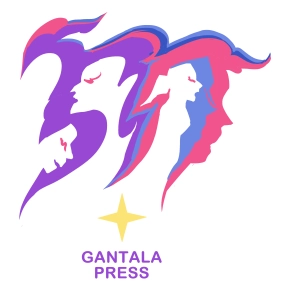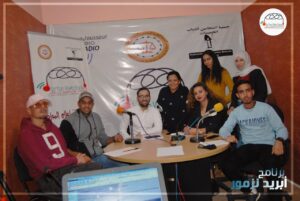Press freedom is a cornerstone of any functioning democracy. It’s also foundational to protecting and promoting all of our other rights enshrined in international law—freedom of belief, freedom from fear, and freedom from want.
The theme of this year’s World Press Freedom Day celebrates the free press’s role as a driver for human rights. It couldn’t come at a more critical moment. Around the world, journalists as well as activists face heightened surveillance and censorship, physical and digital threats, and the pernicious flood of dis- and misinformation.
When press freedom is attacked, all of our rights are in danger. It is imperative, now more than ever, that this fundamental pillar of democracy be protected, so that grassroots activists and journalists everywhere can continue speaking truth to power.
That’s why this World Press Freedom Day, we’re exploring the essential role that a free press plays in enabling our human rights—and how the Fund supports freedom of expression around the world.
1. Information Is Power
Our ability to access clear, reliable, and accurate information is paramount to knowing and using our human rights. In the digital era, new technologies have enabled the free flow of information and given us unfettered access to news from around the world. But the rise in dis- and misinformation has flooded the media landscape with malicious narratives about human rights activists. In this age of information overload, how can we tell what is true?
These toxic narratives are part of what the Funders Initiative for Civil Society calls the “security playbook”—a common set of tools and tactics that authoritarian governments use to silence dissent and crack down on civic space. Governments use state-owned or ideologically aligned media channels to spread fear-based narratives about human rights, laying the groundwork for future repression.
Thankfully, independent media can help set the record straight. Fund grantee El Faro is a critically acclaimed digital news outlet based in Central America. Founded in El Salvador in 1998, El Faro has uncovered bombshell  stories and persistently pushed back on false government narratives. Their investigative reporting has been a rare reliable source of information in the Central American country, where years of civil war, gang violence, and authoritarian politics have eroded democracy.
stories and persistently pushed back on false government narratives. Their investigative reporting has been a rare reliable source of information in the Central American country, where years of civil war, gang violence, and authoritarian politics have eroded democracy.
But their dogged reporting has attracted powerful enemies After what it describes as a campaign of harassment by the government of Salvadorean President Nayib Bukele, El Faro relocated parts of its operations to Costa Rica. It still maintains a newsroom in El Salvador, where its reporters continue to fact-check the Bukele administration.
2. Marginalized People Have a Voice
Traditionally, the institution of the press has played an important role as a gatekeeper: journalists filter information according to what is verifiable, true, and newsworthy. But they have also been able to decide who gets to tell their story—and whose voice is heard.
Today, thanks to decades of progress and the rise of independent platforms, the number of oppressed, vulnerable, or otherwise marginalized voices in the media is growing. They’re able to tell their own stories and share first-hand perspectives on everything from gender-based violence to the experience of being a refugee.
Instead of an outdated colonial model of reporting and newsgathering, we’re hearing the lived experiences of people affected by human rights abuses. That’s shining a light on issues that have long been overlooked or ignored—like, for example, the stories of women widowed by extrajudicial killings in the Philippines.
 Gantala Press, a new Fund grantee in the Philippines, is an independent, feminist literary collective that is pushing back on women’s underrepresentation in the media. The volunteer-run collective publishes books, poetry, comics, zines, and even cookbooks that center Philippine women’s voices and struggles. They’ve emerged as a powerful platform for stories from women on the margins of Philippine society, publishing work by peasant women, women workers, and others traditionally excluded from literary spaces.
Gantala Press, a new Fund grantee in the Philippines, is an independent, feminist literary collective that is pushing back on women’s underrepresentation in the media. The volunteer-run collective publishes books, poetry, comics, zines, and even cookbooks that center Philippine women’s voices and struggles. They’ve emerged as a powerful platform for stories from women on the margins of Philippine society, publishing work by peasant women, women workers, and others traditionally excluded from literary spaces.
This year, Gantala Press is organizing a writing workshop for widows whose partners were executed by state security or paramilitary members during former president Rodrigo Duterte’s devastating war on drugs. Gantala Press is elevating these women’s voices and ensuring that their stories will be heard.
3. Space for Dialogue Wins Hearts and Minds
From op-ed pages to social media, a free press allows us to exchange ideas, share perspectives, and challenge conventional wisdom. These opportunities for open debate are essential to promoting human rights. The long, slow work of creating fairer laws and policies begins with changing entrenched attitudes.
This can be especially important in countries where dissent is not tolerated, and where people may be afraid to speak out against the government or other powerful actors. By providing a platform for diverse voices and perspectives, media can help activists introduce new ideas and promote respect for human rights.

Several Fund grantees have used radio to help foster a culture of open debate and dialogue. In Morocco, the Khemisset Young Lawyers’ Association—a group that advocates for a just and equitable judiciary system—hosts an online radio show that creates space for people to debate social issues. Broadcasting in both Arabic and the Amazigh language indigenous to Morocco, it also educates listeners about human rights. The channel’s name, Izrfan, means “rights” in Amazigh.
In the South Kivu Province of the Democratic Republic of the Congo, Fund grantee MFPDSA (Mutual of Peasant Women for Development and Health in Africa) uses a radio program to challenge the entrenched cultural discrimination against albino and Pygmy youth. Albinism is deeply stigmatized in the Congo, and albino children are regularly killed. Over the airwaves, MFPDSA informs the families of vulnerable children about their rights—and reminds everyone that human rights are non-negotiable.
Sign up to our newsletter
Add some impact to your inbox.
By submitting this form, you accept that your data will be stored and processed in line with our Privacy Policy.


